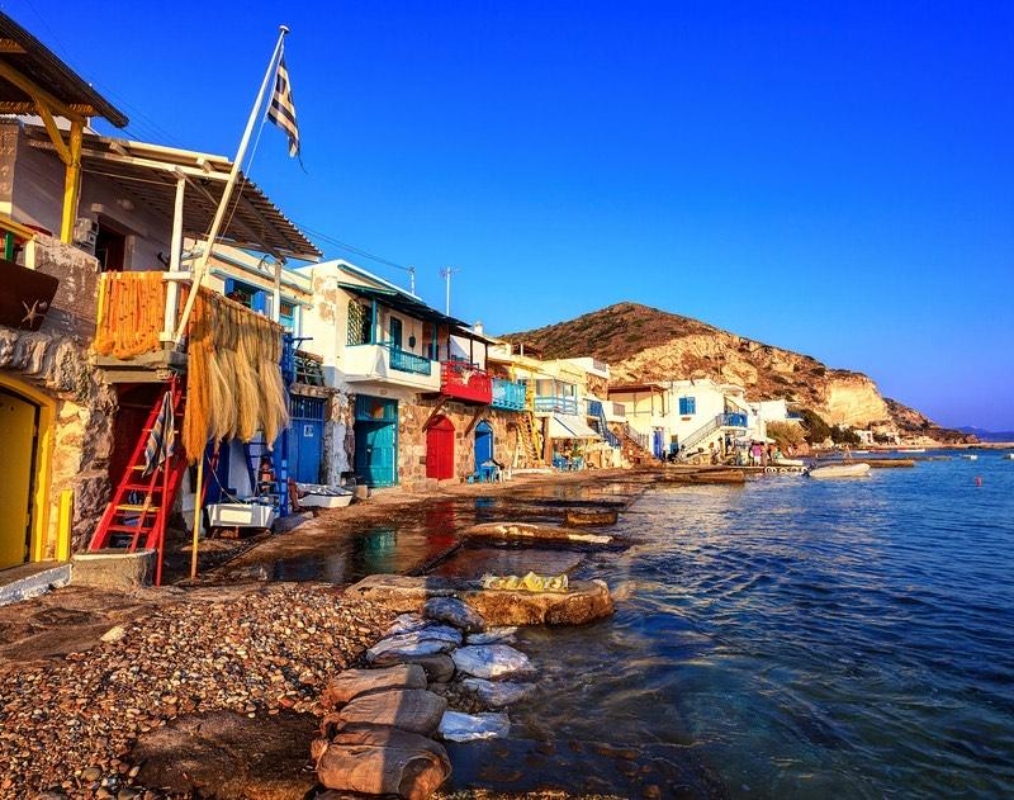Tourism 2025: Record Arrivals and Revenues, but Infrastructure Under Pressure

Πηγή Φωτογραφίας: http://www.arttravel.gr/Tourism 2025: Record Arrivals and Revenues, but Infrastructure Under Pressure
Record Growth with Hidden Imbalances
In 2025, Greek tourism closes another year with positive indicators in both arrivals and revenues, yet significant imbalances persist between regions and businesses.According to the Bank of Greece, visitor arrivals in January–August exceeded 25.9 million, a 4.1% increase over 2024, while travel receipts rose to €16.71 billion, up 12% year-on-year.
These are record-breaking figures, but, as Yannis Chatzis, President of the Panhellenic Federation of Hoteliers (POX), warns, “The picture is positive but fragile.”
He further notes that 2026 could mark a year of maturity crisis:“If we do not invest in infrastructure and enforce transparency and coordination rules, this success will remain superficial and temporary.”

Revenue Records vs. Real Gains
Rising revenues do not automatically translate into meaningful prosperity for the sector.A recent Eurobank study shows that real average spending per overnight stay has hardly increased over the past fifteen years. From €68.6 in 2010, it reached €89.7 in 2024, largely offset by inflation.

Essentially, revenue growth comes from volume, not quality upgrades.As Chatzis puts it:“We are bringing more tourists who stay less and spend less.”
While the numbers reflect a boom, many businesses still face tight margins: occupancy rates around 80%, stable room rates, and slightly declining RevPAR.

Two-Speed Tourism: Mykonos and Santorini Under Strain
Tourism growth is uneven. Destinations like Crete and Rhodes are strengthening, but Mykonos and Santorini are showing signs of fatigue.Chatzis defends these top-tier destinations:“We cannot demonize our strongest brands. The pressures they face come from lack of infrastructure, not overdevelopment.”
Managing success is now a strategic challenge: protecting Greece’s identity while upgrading visitor experiences without risking overtourism.
Extending the Season: Promise or Reality?
The trend of extending the tourist season remains positive but limited.European Travel Commission (ETC) data shows a 7% increase in demand for fall and winter travel to the Mediterranean, yet only a few Greek destinations (Crete, Rhodes) truly benefit.

According to Chatzis, success here is strategic:“Season extension doesn’t happen by chance—it requires partnerships with airlines, thematic experiences, and local projects.”
Areas with fewer flights or delayed infrastructure see declining indicators, keeping Greece largely seasonal with some notable exceptions.
Domestic Tourists Shift Patterns
Another noteworthy trend in 2025 is the shift in domestic tourism.Many Greeks avoided the islands, opting for mainland road trips to save costs.Chatzis sees this positively:“It’s an opportunity to redistribute tourism benefits and extend activity to new regions.”
If leveraged, this shift could strengthen underutilized regions, from Epirus and Western Greece to Thrace.
Infrastructure at the Limit
Behind the record numbers lies the old, persistent challenge: inadequate infrastructure.Roads, water networks, waste management, and basic services in many destinations are at full capacity. Chatzis is blunt:“Shifting blame has become a national sport. Local governments confuse tourism with PR, but tourism requires planning and management—not just promotion.”
The lack of coordination among the state, local authorities, and private sector threatens the sustainability of Greece’s tourism success.

Paradox of Tourist Taxes
The debate over tourist taxes has resurfaced, with the new “cultural levy” in Zagori and the resilience tax for climate initiatives, expected to generate around €600 million.POX argues these taxes rarely return to the communities generating them:“The state treats tourism like a cash machine without accountability. If taxes don’t fund clean-up, water, and upgrades, they are unjust and counterproductive.”
This creates a stark paradox: destinations generate funds but see little improvement in daily services.
Early Signals for 2026
Bookings for 2026 are cautiously positive, not spectacular.Central and Northern European markets show signs of fatigue, while the U.S. market remains steady.India is emerging as a new market, but requires a targeted strategy.“Demand exists, but travelers are weighing living costs and exchange rates. Greece’s beauty alone isn’t enough; clear value and consistent experiences are essential,” notes Chatzis.
The message is clear: Greek tourism faces organization and strategic challenges, not visitor shortages.
From Records to Sustainability
2025 confirms the resilience of Greek tourism, but also highlights the limits of the current model. Greece can celebrate numbers exceeding pre-pandemic levels, yet without infrastructure investment, spatial balance, and transparent management, success remains superficial.
Tourism is Greece’s heavy industry, but it needs a renewal at its foundations:
- Planning over improvisation
- Return on taxes instead of overtaxing
- Quality over sheer volume
Only then can 2026 become a year of maturity rather than the first sign of fatigue in a long-standing success story.
Source: pagenews.gr
Διαβάστε όλες τις τελευταίες Ειδήσεις από την Ελλάδα και τον Κόσμο






Το σχόλιο σας